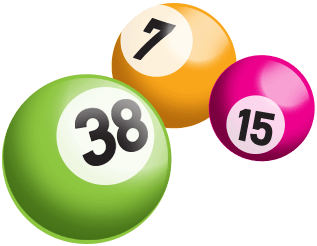Playing a charity lottery or raffle is a great way to support a charity while also being in with a chance of winning cash prizes, as well as amazing opportunities to win some physical prizes too, such as a garden makeover, a holiday, a car and more! But you may be unsure of the difference between a lottery and a raffle. To help you, this guide explains the similarities and differences between the two so you can decide which you want to play.
What is a lottery?
A lottery, such as the National Lottery, usually involves purchasing a ticket that contains a selection of numbers, most often between one and 59. Sometimes you have the option to pick these numbers and other times, they will be picked for you at random. The ticket can usually be bought from a physical premises, such as a Post Office or local shop, but can also be purchased online too. Every ticket has an equal chance of winning, and you can win a variety of cash prizes, depending on the proportion of numbers on your ticket that match the drawn numbers.
To play the Age UK Weekly Lottery, all you have to do is select the number of entries you want per week (at £1 per entry) and set up a payment. The lottery is drawn each week and you’ll automatically receive your winnings if you’re a lucky winner! By playing a charity lottery, you’re helping to support Age UK’s charity work, which supports older people across the UK.
What is a raffle?
The definition of a raffle is slightly looser than that of a lottery, but the general difference is that a lottery tends to offer cash prizes whereas a raffle offers physical prizes. This isn’t always the case, however. The Age UK Raffle, for example, offers both physical and cash prizes. The Oxford English Dictionary defines a raffles as “a means of raising money by selling numbered tickets, one or some of which are subsequently drawn at random, the holder or holders of such tickets winning a prize”. This seems very similar to the definition of a lottery. Generally, a raffle is similar to a lottery in that people can buy a chance to win a prize, cash or otherwise.
Age UK offers both a lottery and a raffle. The lottery runs weekly and picks a winner based on their randomly generated numbers, whereas the raffle takes place just three times a year - Spring, Summer and Christmas. Both the lottery and the raffle offer a number of prizes, such as a garden makeover or a summerhouse, meaning there are multiple winners each time.
For both the lottery and the raffle, tickets cost £1 and anyone over the age of 18 can enter. If you’ve already entered, you can check to see whether you’ve won using the ‘Are you a winner’ page.
Is a raffle a lottery?
Technically yes, a raffle is a type of lottery (and are considered the same by the Gambling Commission), but the two do have very slight differences. While some of these have already been briefly covered above, you can find a more thorough breakdown of their differences below.
What are the main differences?
- Physical vs. monetary prizes
A raffle usually offers physical prizes. This is particularly the case when it’s a raffle at an event, and prizes such as food, wine, hampers, gift days and more are available to win by purchasing a raffle ticket. In contrast, a lottery usually only offers cash prizes. As already stated, however, Age UK’s raffle offers monetary prizes as well as physical ones.
- A lottery can rollover
When you play a raffle, the numbers are often repeatedly drawn until a winner is found. However, when you play a lottery, if there’s no winner based on the drawn numbers, the jackpot rolls over to another week or month. Remember that if you play the Age UK Weekly Lottery, there are no rollovers and a winner is guaranteed every time! This sets this lottery apart from some of the larger national ones.
- One number vs. multiple numbers
In a national lottery, the amount of drawn numbers that match with those on your ticket determines how much money you win. If you match a couple of numbers, you may win a smaller prize, such as £10 or £100, whereas when you match more numbers, your prize can increase. A raffle, however, generally involves the purchase of one ticket that has one number. If that number is drawn, you win a prize.
 Play the Age UK Lottery today!
Play the Age UK Lottery today!
Every Friday you'll be in with a chance of becoming one of our 1,500 guaranteed winners!


